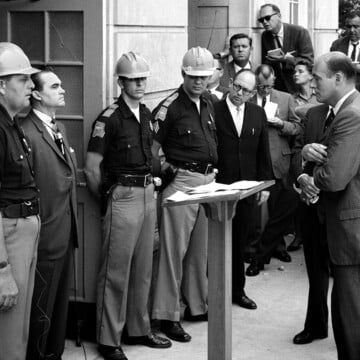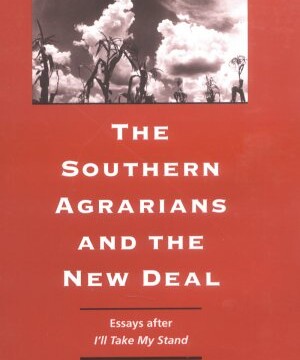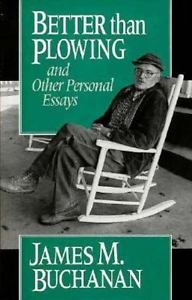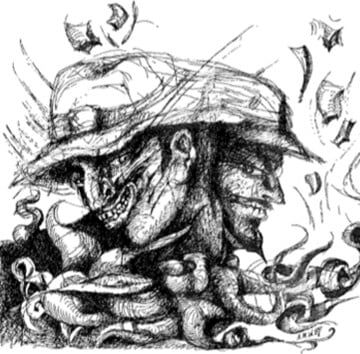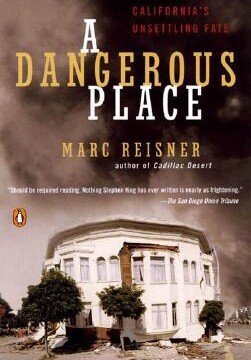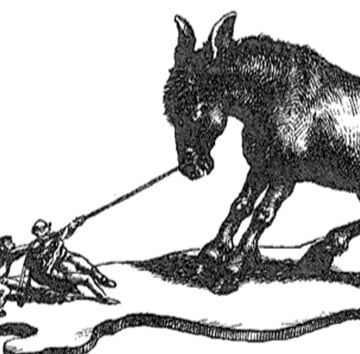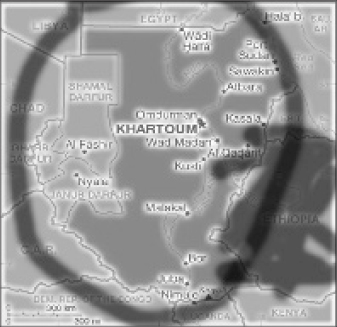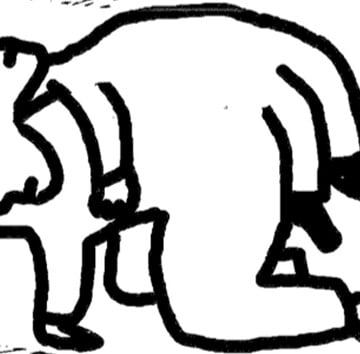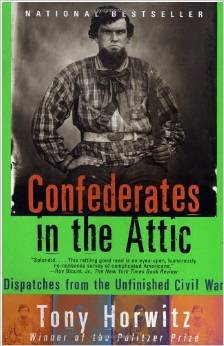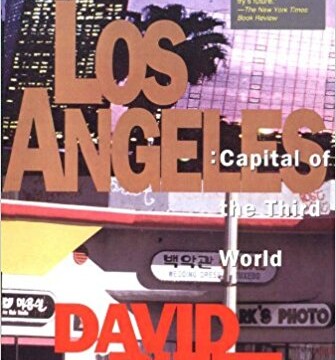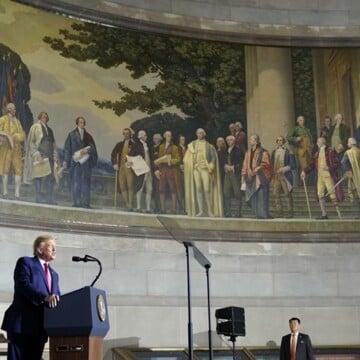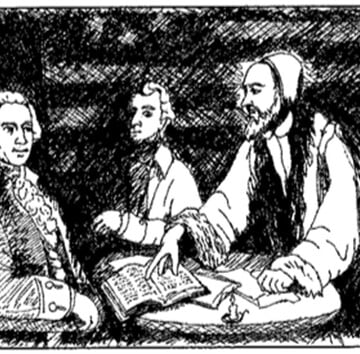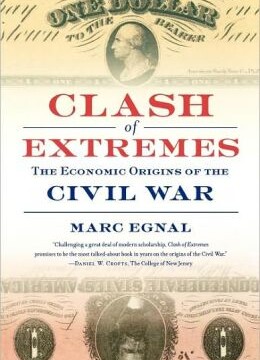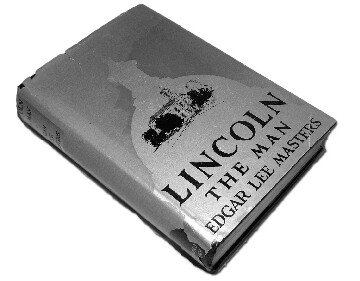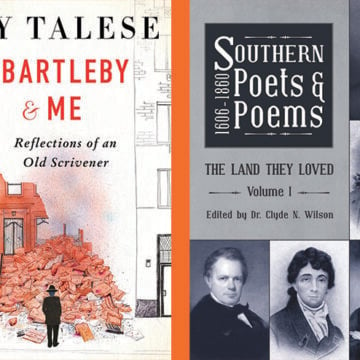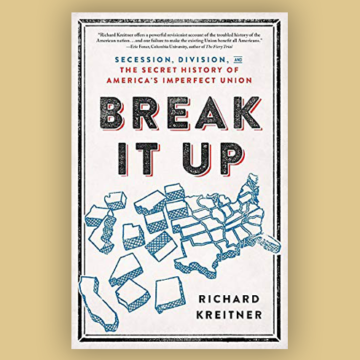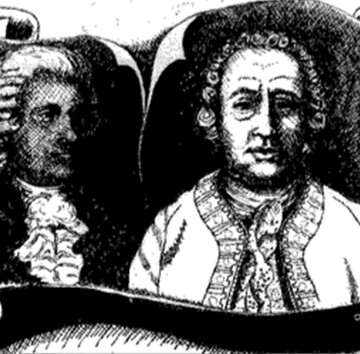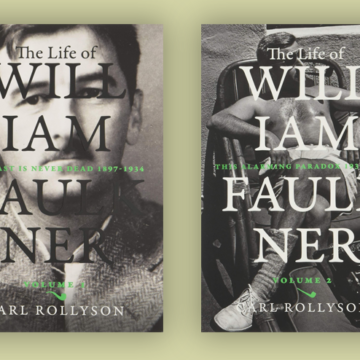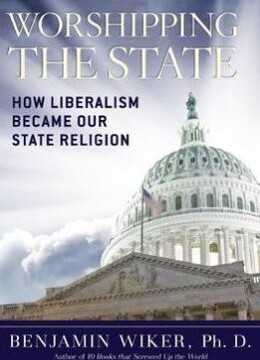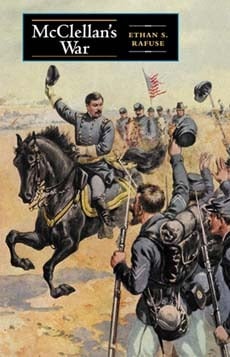People don’t like it when you mess with their heritage. The Bolsheviks tried to destroy Russian nationalism, in particular massacring Russian Orthodox bishops, priests and nuns. But when Hitler invaded, not enough Russians fought for Marx, Lenin and dialectical materialism. So Stalin allowed Metropolitan Bishop Sergius to be elected patriarch, brought some of the surviving...
2673 search results for: Southern%25252525252525252525252525252BHeritage
Reassessing the Legacy of George Wallace
There was a very odd occurrence in the “Cradle of the Confederacy” in July 1987: Presidential aspirant and civil rights activist Jesse Jackson paid a visit to the Montgomery, Alabama, home of George Corley Wallace. It had been 126 years since Jefferson Davis stood on the steps of the Alabama capitol and been sworn in...
The Road Not Taken
The 1930’s were marked by intellectual trauma as well as by economic hardship. What had caused the apparent catastrophic crash of “capitalism”—collapse of equity, vanishing demand, and vast unemployment? The desire to diagnose the cause and prescribe a remedy created many ideas and movements. Some achieved success of a sort, and others went unheeded. The...
The Right Fork
“I ask myself again why anyone would find interest in the private dimensions of my own history,” muses Nobel laureate economist James M. Buchanan in his new collection of personal and intellectual autobiographical essays. The question, embedded in an essay entitled “Country Aesthetic,” which explores the manifold and profound meanings that the concept of country,...
It’s Time for (Yawn) Another Election
It hasn’t escaped attention down here that it’s an election year. My buddy Eugene, who cares about these things more than is good for him, explained to me the other day why George Bush is going to be our next President. “Well,” he said, “first we had Jimmy doing his Woodrow Wilson impression, right? Upright...
Randy Newman’s American Dream
When Randy Newman played the Kennedy Center in Washington last March, it was perfectly appropriate, on one level: No contemporary pop singer has serenaded America as far and as wide as Newman. He’s written songs about Birmingham, Louisiana, Baltimore, Dayton, Los Angeles, Gainesville, Kentucky, Miami, the Cuyahoga River, New Orleans. His appearance in a government-sanctioned...
The Paleoconservative Imagination
In January 1996, Norman Podhoretz delivered a self-congratulatory eulogy for neoconservatism in a lecture before the American Enterprise Institute. In addition to giving himself and his cohorts credit for the recent successes of the American right, Podhoretz boasted that “thanks to the influence of neoconservatism on the conservative movement in general, the philistine indifference to...
The Virus Sidelines Europe’s Right Wing
COVID-19 has rendered Europe’s right-wing parties all but obsolete, at least in the near-term. Nationalist parties like Alternative für Deutschland (AfD, “Alternative for Germany”) and the Dutch Partij voor de Vrijheid (PVV, “Party for Freedom”) had built their electoral clout upon anti-migration sentiment. But the centrists have robed themselves in new patriotic colors, robbing the nationalists in Western Europe of...
A Continued Source of Conflict
The Confederate battle flag continues to be a source of conflict and controversy. One year ago, Michael Westerman of Elkton, Kentucky, a 19- year-old father of twins, was murdered by black teens who took offense to the Confederate flag hung in the back of Westerman’s truck. When one of the black teens, Freddie Morrow, was...
Sudan, Ethiopia, and the American Empire
Sudan and Ethiopia are neighboring countries that are both ruled by authoritarian regimes; each is engaged in a brutal counterinsurgency operation against rebel forces—the former, in Darfur; the latter, in Ogaden. Curiously, these countries are treated quite differently by Washington; and this difference reveals a great deal about the ...
A Dike To Fence Out the Flood
When in September of 1787 the new instrument of government proposed by the Great Convention went out from Philadelphia to be received and considered by the several commonwealths connected through the old Articles of Confederation, those fraternally affiliated societies saw the document delivered to them through the Continental Congress according to their own needs and...
Piety and Meaning
Walter Sullivan is professor of English at Vanderbilt University, the author of two novels, and, most recently, of Allen Tate: A Recollection. He is also a frequent and long-standing contributor to the Sewanee Review, in which four of the ten essays in this volume (dedicated to, among others, George Core, Sewanee‘s editor) first appeared. Although...
Huckabee’s Confederate Flag Fraud
Veterans of South Carolina politics have been waiting and wondering what the last minute stunt would be leading up to Saturday’s First-in-the-South bellwether Republican primary. I predicted it would be a Confederate flag stunt and begged the Ron Paul campaign to make his positions on the War Between the States better known, early on. The...
Driving Dixie Down
Did I make a wrong turn? Did I go too far north? No, I was still in beautiful Port Pierce, Florida. What shocked me into thinking I had accidentally wound up in South Carolina was a flag: two red bars diagonally crossing a solid white background, suspiciously resembling the dreaded Confederate Cross. There it was,...
Erasing Mason-Dixon
The South has an enduring status as a region somewhat separate from the main thrust of American life. The tension between agrarian and commercial impulses in American society, epitomized by the yeomen idealized in Thomas Jefferson’s Notes on the State of Virginia and the striving industrial class whose rise was promoted by Alexander Hamilton’s Reports as Secretary...
What the Thunder Said
“The earth opened her mouth, and swallowed them up, and their houses, and all the men that appertained unto Korah, and all their goods.” —Numbers 16:32 The Lisbon Earthquake of 1755 convinced Voltaire (who didn’t need convincing to begin with) of the nonexistence of God. The Great California Earthquake, when it comes (as it must),...
Bad Sports
Football season once again, and a profoundly depressing time of year it is. Sundays are all right—football’s an interesting game and the NFL plays it superbly. It’s Saturday afternoon that always makes me blue. Being a good citizen, I cheer for our team, of course, but we really have no business playing Clemson, much less...
Cabbages and Worms
Umberto Bossi does not like journalists. His stock epithet for the gentlemen of the press—applied to them almost as regularly as “swift-footed” precedes Achilles—is vermi (worms), although he sometimes falls back on servi sciochi (idiot servants). Not too long ago, at a Lega Nord meeting, Bossi caught sight of the press corps covering the event...
Lynchings and Litmus Tests
When it comes to race, life in America resembles nothing so much as a reenactment of Shirley Jackson’s short story “The Lottery.” That story, you’ll recall, depicted a town that seemed normal—except that, once every year, there would be a lottery, and if you picked the one black stone among so many white ones, the...
Sudan, Ethiopia, and the American Empire
Sudan and Ethiopia are neighboring countries that are both ruled by authoritarian regimes; each is engaged in a brutal counterinsurgency operation against rebel forces—the former, in Darfur; the latter, in Ogaden. Curiously, these countries are treated quite differently by Washington; and this difference reveals a great deal about the current modus operandi of the American...
The Paleoconservative Imagination
In January 1996, Norman Podhoretz delivered a self-congratulatory eulogy for neoconservatism in a lecture before the American Enterprise Institute. In addition to giving himself and his cohorts credit for the recent successes of the American right, Podhoretz boasted that “thanks to the influence of neoconservatism on the conservative movement in general, the philistine indifference to...
Dixie Redux
In Maryland, one naturally associates historical reenactment with the Civil War. Yet the only reenactor I know eschews the Civil for the Revolutionary War because, he says, “I don’t reenact events where the people are still fighting the war. They might use live ammunition!” Tony Horwitz’s account of the South’s continuing preoccupation with the War...
Their Third World Problem—And Ours
Procrastinating readers can pat themselves on the back if they waited to pick up David Rieff’s Los Angeles: Capital of the Third World until it came out in paperback. For one thing, the Los Angeles riots, which so captivated television-transfixed Americans for a couple of days last year until the weekend arrived and the networks...
Bailing the Capitalists: Our Southern Fathers Told Us What To Expect
“ . . . and bank-notes will become as plentiful as oak leaves.” —Thomas Jefferson “They [the people], and not the rich are our dependence for continued freedom. And to preserve their independence, we must not let our rulers load us with perpetual debt. We must make our election between economy and liberty, or profusion...
Rejecting the ‘Proposition Nation’
In January, Donald Trump’s President’s Advisory 1776 Commission released its 45-page “1776 Report,” which, according to The New York Times, is “a sweeping attack on liberal thought and activism that…defends America’s founding against charges that it was tainted by slavery and likens progressivism to fascism.” Joe Biden scrapped it the day he entered office, and...
How to Get Along in the South: A Guide for Yankees
Right now, down here, we seem to be experiencing an influx of Northern migrants. There are so many of them, and misunderstanding is so frequent, that I fear a new wave of sectional hostility may be shaping up. I offer as evidence the fact that some of my less tolerant brethren have taken to referring...
What Price for My Soul?
What price would you place upon your soul? For the people of Mississippi, this question recently became more than a mere philosophical or theological inquiry. True enough, all of us face this question in small, unnoticed ways as we move through life. Thankfully, most of us can make our choice quietly, in private, and away...
Calvinism and Culture
Historian Christopher Dawson writes that “It is clear that a common way of life involves a common view of life, common standards of behavior, and common standards of value, and consequently a culture is a spiritual community which owes its unity to common beliefs and common ways of thought far more than to any unanimity...
The Dream of the South
“Poetry is a northern man’s dream of the South.” —F. Scott Fitzgerald, “The Last of the Belles” In the summer of 1933, Southern Agrarian poet Allen Tate and his friend Marxist literary critic Malcolm Cowley visited various Civil War landmarks in northern Tennessee and southern Kentucky. After being photographed shaking hands in front of the...
Real Causes
Ask any trendy student of history today and he will tell you that, without question, the cause of the great American bloodletting of 1861–65 was slavery. Slavery and nothing but slavery. The unstated and usually unconscious assumption is that only people warped by a vicious institution could possibly fight against being part of “the greatest...
Covering Dixie Like the Dew
Time for another round-up of Southern news you may not have seen. Let’s start off slow, with this item from the Chapel Hill (NC) Newspaper, back in February. Arnold D. Rollins of Rt. 5 Box 372, Chapel Hill, reported a hit-and-run accident on Columbia St. and Rosemary St. at 11:30. According to police reports, a...
Yemen: The Geopolitics of Chaos
The Port of Aden The war in Yemen is like the drought in the Sahel or the carnage in the streets of south Chicago: an ongoing unpleasantness of which we are but vaguely aware, a regrettable but irrelevant fact of life. It is nevertheless remarkable that the capture of Aden by southern Yemeni separatists on...
The Other Side of the Union
“The Northern onslaught upon slavery was no more than a piece of specious humbug designed to conceal its desire for economic control of the Southern States.” —Charles Dickens, 1862 “Slavery is no more the cause of this war than gold is the cause of robbery.” —Gov. Joel Parker of New Jersey, 1863 In 1931, sixteen...
Incidentally White
“[T]o speak in general terms of the prototypical Southern conservative we would say first of all that he was not an alienated man.” —M.E. Bradford, “Where We Were Born and Raised” White nationalism has long existed on the borderlands of disaffected conservatism. Among its several denominations is the movement known as identitarianism, which combines the...
A Southern Tradition
A southern tradition ended on August 19, when Beth Anne Hogan, a 17-year-old ponytailed blonde from Junction City, Oregon, signed the Virginia Military Institute’s matriculation book. With help from Janet Reno’s Justice Department and the U.S. Supreme Court, Miss Hogan and some 30 other young women have done to VMI what the corpulent Shannon Faulkner...
Thank You for Smoking
A wise man once observed that the existence of a nation requires that many things be forgotten—in particular, those things that divide its people. Maybe that’s why the South never made it. Black and white Southerners have had their little disagreements in the past, of course, and so have flatlanders and hillbillies, rednecks and gentry....
Books in Brief: May 2024
Short reviews of Bartleby & Me by Gay Talese and Southern Poets and Poems, 1606 -1860: The Land They Loved by Clyde N. Wilson.
The Life of the Mind in Glitter Gulch
For seven years (1989-96), I was a full time faculty member at the University of Nevada, Las Vegas (UNLV). I grew up in Las Vegas, earning a B.A. in philosophy from UNLV in 1983 before going to graduate school. In August 1996, my wife and I left Nevada and moved to Southern California, where I...
The Habit of Making
“Nature I loved, and next to nature, art.” —W.S. Landor In October 1986, I heard Robert Penn Warren read a selection of his poems at an LSU conference marking the 50th anniversary of the Southern Review. He was 81 years old, exceeding frail, and suffering from cancer. About halfway through the...
Deo Vindice
One day last September I was visited by a couple of guys who were writing a cover story on the South for a Dutch magazine. They had been to Darlington, Tuskegee, Oxford, Charleston, and other shrines of Southern culture, and I was pleased to see that Chapel Hill was still on the list. Over Allen...
Union Without Unity
Break It Up; by Richard Kreitner; Little, Brown and Company; 497 pp., $30.00 Stamped on the United States’ three-dollar Continental bill in 1783 was the phrase, “The Outcome Is in Doubt.” A more appropriate phrase for our own time could hardly be found. It also serves as the subtext of journalist Richard Kreitner’s fascinating new book, which chronicles the...
The GOP’s Secret Weapon
If the war with Iraq was largely the work of the Likudnik faction that has commandeered the Bush administration’s Middle East policies, the liberation of Liberia on which the President suddenly embarked the nation last summer seems to have originated at least in part with yet another lobby of questionable loyalties. On July 7, as...
David Hume and American Liberty
David Hume’s History of England was one of the most successful literary productions of the 18th century. It became a classic in his lifetime and was published continuously down to 1894, passing through at least 167 posthumous editions. The young Winston Churchill learned English history from an abridged edition known as “The Student’s Hume.” Yet...
Faulknerian Presentism
The Life of William Faulkner. Volume 1: The Past Is Never Dead, 1897–1934 512 pp., $34.95 The Life of William Faulkner. Volume 2: This Alarming Paradox, 1935–1962 656 pp., $34.95 by Carl Rollyson University of Virginia Press Readers might be excused for exclaiming, “What! Another Faulkner biography?” Yet one can make a case for a...
The Rise and Fall of a Paleoconservative at the Washington Times (Part I)
After nearly a decade of working for the Washington Times, I was fired last September. Technically, I “resigned,” but Wes Pruden, the Times‘ editor-in-chief, asked me for a letter of resignation, and I had no real choice but to agree. Nor, by that time, had I any real desire to remain on the staff. The...
Who Now Helps the Help?
In his essay entitled “The Call to Service,” John Erskine posed these questions: Do you look on the unfortunate as your brothers, in temporary distress, or do you see in them objects of charity? Do you think your function is to serve, and their function is to be served? If by a miracle they should...
Pedestaled Power
Post-Christian beliefs permeate the culture. A stroll across the majority of university campuses, five minutes of channel surfing, the U.S. Supreme Court’s First Amendment case law, popular behavior and that of the American elite—these are proof positive that Christianity in the 21st century bears little resemblance to the Christianity of America’s not too distant past. ...
The Path Not Taken
McClellan’s War: The Failure of Moderation in the Struggle for the Union by Ethan S. Rafuse Bloomington: Indiana University Press; 525 pp., $35.00 Walt Whitman remarked after it was over that “the real war will never get in the books,” and, despite all the volumes that have been written since then, his prediction remains largely...
The League Replies
Dr. Samuel Francis describes secession as an “infantile disorder” and casts The League of the South in the role of Margaret Mitchell’s impetuous Stuart Tarleton in contrast to the part he imagines he is playing—the cool, rational Rhett Butler. But if Dr. Francis had bothered to read the League’s literature, he would have learned that,...
A Tale of Two Keys
Everybody knows that “The Star-Spangled Banner” was written by Francis Scott Key as he watched the British attack on Fort McHenry in Baltimore harbor during the War of 1812. But in 1861 Francis Key Howard wrote about his grandfather, “The flag which he then so proudly hailed, I saw waving at the same place over...
